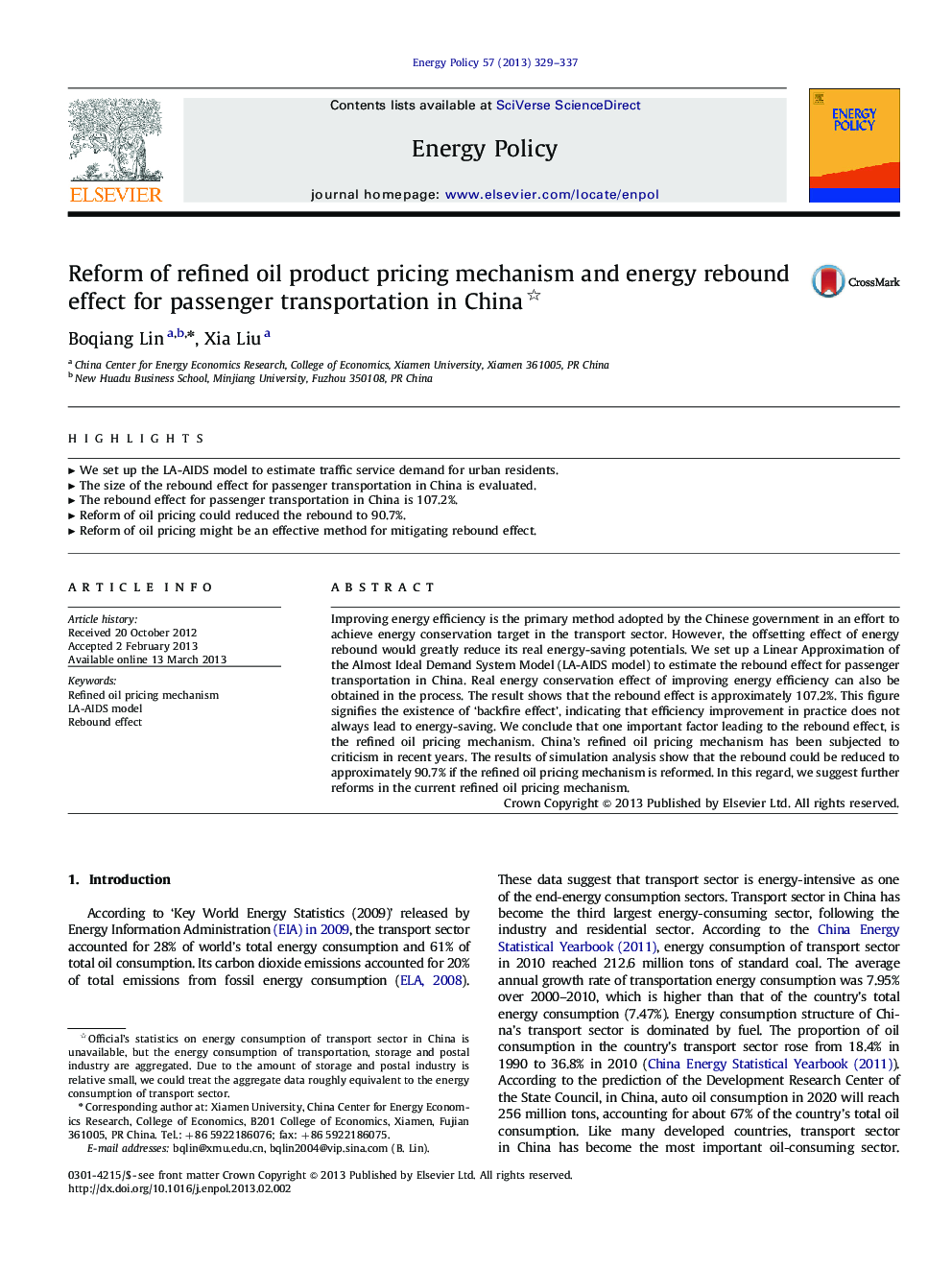| کد مقاله | کد نشریه | سال انتشار | مقاله انگلیسی | نسخه تمام متن |
|---|---|---|---|---|
| 992977 | 1481301 | 2013 | 9 صفحه PDF | دانلود رایگان |

Improving energy efficiency is the primary method adopted by the Chinese government in an effort to achieve energy conservation target in the transport sector. However, the offsetting effect of energy rebound would greatly reduce its real energy-saving potentials. We set up a Linear Approximation of the Almost Ideal Demand System Model (LA-AIDS model) to estimate the rebound effect for passenger transportation in China. Real energy conservation effect of improving energy efficiency can also be obtained in the process. The result shows that the rebound effect is approximately 107.2%. This figure signifies the existence of ‘backfire effect’, indicating that efficiency improvement in practice does not always lead to energy-saving. We conclude that one important factor leading to the rebound effect, is the refined oil pricing mechanism. China's refined oil pricing mechanism has been subjected to criticism in recent years. The results of simulation analysis show that the rebound could be reduced to approximately 90.7% if the refined oil pricing mechanism is reformed. In this regard, we suggest further reforms in the current refined oil pricing mechanism.
► We set up the LA-AIDS model to estimate traffic service demand for urban residents.
► The size of the rebound effect for passenger transportation in China is evaluated.
► The rebound effect for passenger transportation in China is 107.2%.
► Reform of oil pricing could reduced the rebound to 90.7%.
► Reform of oil pricing might be an effective method for mitigating rebound effect.
Journal: Energy Policy - Volume 57, June 2013, Pages 329–337